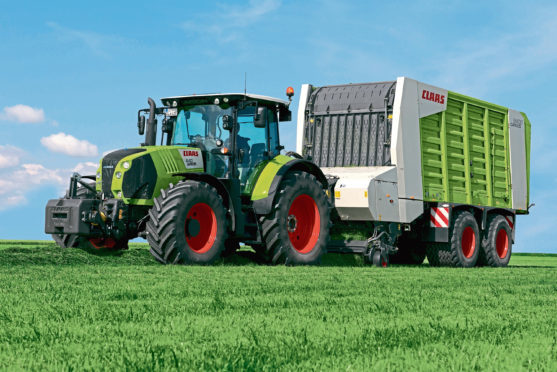One of Scotland’s main Claas dealerships, Sellars Agriculture, is expanding into the central belt.
The Oldmeldrum company, which has bases at Forres, Huntly, Cupar, Perth and Letham in Angus, is opening a new branch in West Lothian, near Linlithgow.
The depot, which is to be opened before the 2018 harvest season, will be called Sellars Linlithgow.
“Our investment in central Scotland is a sign of our confidence in Scottish agriculture and we look forward to providing a high level of service to existing, and potentially new, customers,” said Sellars managing director, Neil Wattie.
He said the location of the new depot, which is close to the M9 and other major roads, made it the ideal place to provide more localised service for customers south of the Forth.
Mr Wattie also revealed that the company had bought back Claas UK’s shareholding in Sellars.
He said: “We are proud that we are in a position where we can buy back Claas UK’s minority shareholding, and so return to being 100% locally and family owned, and we are extremely grateful for the support and contribution they have made over the past years.
“Going forward as a mean dealer for Claas, Lemken, Stewart, and many other high-quality manufacturers, we will continue to provide a superior range of machines and equipment to our customers, as always backed up by our reputation for offering a first-class service.”
Meanwhile, the latest accounts for Sellars, which employs 80 people, reveal a boost in both turnover and pre-tax profits.
Turnover for the year ended September 30 2017, was £25.525 million.
This is up 6% on the year before when sales amounted to £23.749m. Pre-tax profits increased by 352% to £548,000, from £121,152.
Mr Wattie said: “I’m very pleased with the 2017 results showing increased turnover, reduced costs and significant bottom line increase.”
Commenting on the current financial year, he said: “To date performance for 2018 is slightly ahead of last year and hopefully continues to achieve a healthy net result.
“Customer confidence for investment in machinery and equipment has improved although there is still a bit of caution in the market place and the normal replacement cycle of machines has increased by one or two years.”
